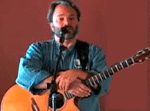Difference between revisions of "Vocal and Guitar Performance Techniques"
(Three categories - Vocal Tone, Guitar Tone, Performing) |
m (minor reformatting) |
||
| Line 60: | Line 60: | ||
=== Dynamics === | === Dynamics === | ||
=== Stay out of own way === | === Stay out of own way === | ||
| + | * Be aware of the relative roles and volumes of your Vocals and your Guitar. Don't compete with yourself by overplaying Guitar while singing. | ||
| + | |||
=== Match EQ to mix === | === Match EQ to mix === | ||
=== Don't push/press harmonica player === | === Don't push/press harmonica player === | ||
| Line 68: | Line 70: | ||
=== Conclusion === | === Conclusion === | ||
=== Good tone a function of listening & experimenting === | === Good tone a function of listening & experimenting === | ||
| − | |||
| − | |||
| − | |||
| − | |||
| + | <!-- Please do not edit below this line --> | ||
---- | ---- | ||
[[Category:Acoustic Guitar]] | [[Category:Acoustic Guitar]] | ||
[[Category:Editorial]] | [[Category:Editorial]] | ||
[[Category:Vocals]] | [[Category:Vocals]] | ||
Revision as of 03:56, 21 March 2008
Presentation by Tom Munch
This is a video recorded at the 2007 Fall Rocky Mountain Conference held in Cuchara Colorado in 2007.
Videos
Vocal Tone Performance Tips
Vocal Tone — 30 minutes
Guitar Tone Performance Tips
Guitar Tone — 30 minutes
All in One
There are two versions of this presentation available:
- 320 x 240 smaller video - better for slow connections.
- 640 x 480 larger video - best if you have a really fast connection. The video is approximately 60 minutes long.
Related document: Acoustic Guitar Tone & the L1® also by Tom Munch.
After you watch the videos please help us add some point form notes below. I started with Tom's outline for the headings. You can add content or other points.
Vocal Tone
Good air
Diction
Consonants, Ending consonants
Plosives
- Having trouble with popping consonants? Move closer to the microphone. Eliminate plosives by keeping your lips on the windscreen
Chest, throat, nose
EQing with technique
Shape mouth, throat
Push forward or back
Working the Mic
- Moving back from the microphone robs you of tone.
- The ToneMatch® Filters were created for close microphone technique.
Stay Glued to the Windscreen
- If you move your head around the microphone, swivel so that you mouth is always pointed at the windscreen.
Mic is an instrument
Listen & experiment
Guitar Tone
Flesh/nail/pick
EQ with fingers
Demonstrate
Flesh & nail
Picks
Hand position
Find good instrument tones for your instrument
Cover all frequencies
Tailor to function in mix
Listen & experiment
Performing
Dynamics
Stay out of own way
- Be aware of the relative roles and volumes of your Vocals and your Guitar. Don't compete with yourself by overplaying Guitar while singing.
Match EQ to mix
Don't push/press harmonica player
- Harmonica player = Larry Adler

